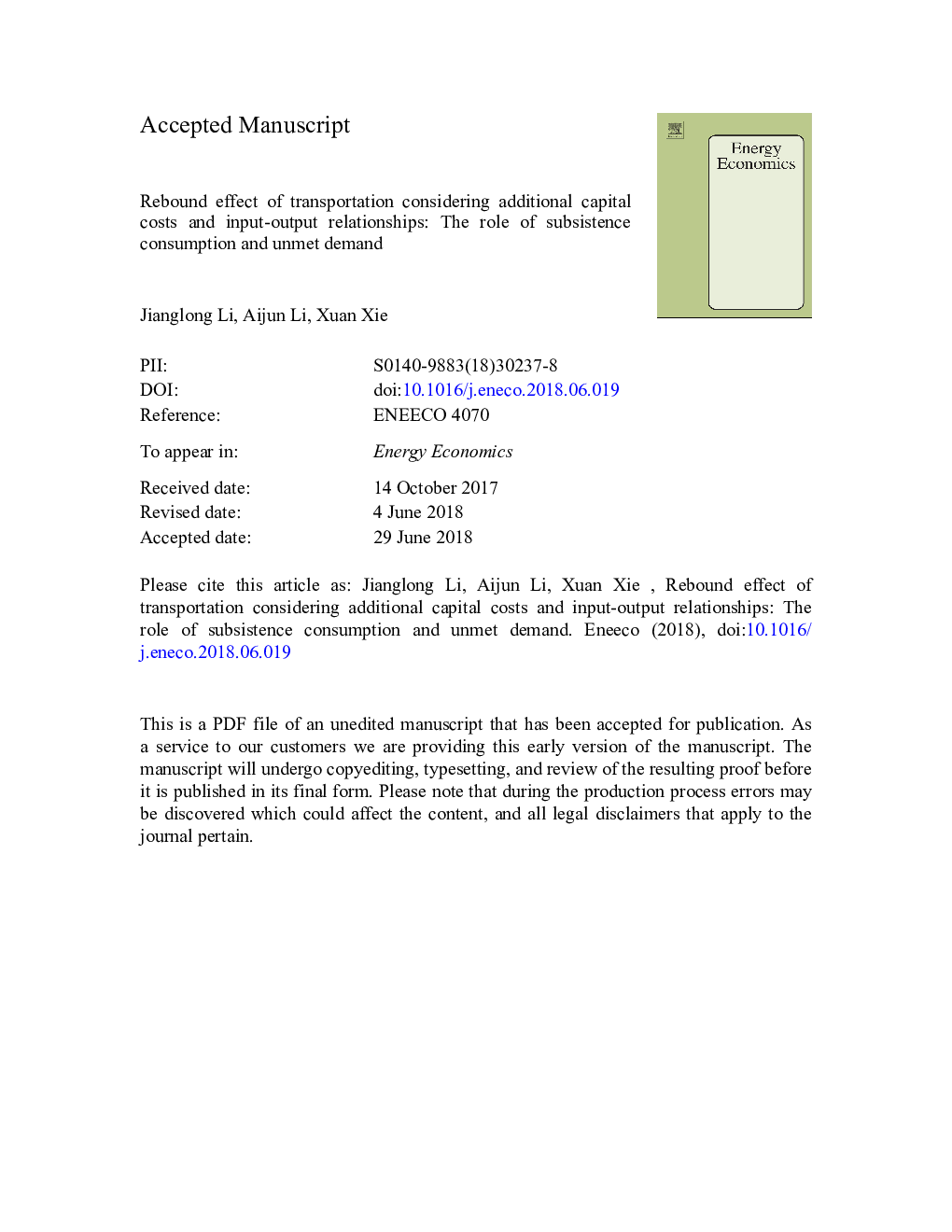| کد مقاله | کد نشریه | سال انتشار | مقاله انگلیسی | نسخه تمام متن |
|---|---|---|---|---|
| 7350127 | 1476689 | 2018 | 36 صفحه PDF | دانلود رایگان |
عنوان انگلیسی مقاله ISI
Rebound effect of transportation considering additional capital costs and input-output relationships: The role of subsistence consumption and unmet demand
ترجمه فارسی عنوان
اثر بازپرداخت حمل و نقل با توجه به هزینه های سرمایه ای اضافی و روابط ورودی-خروجی: نقش مصرف مواد و تقاضای ناخوشایند
دانلود مقاله + سفارش ترجمه
دانلود مقاله ISI انگلیسی
رایگان برای ایرانیان
کلمات کلیدی
تأثیر بازتاب، هزینه های اضافی سرمایه، روابط ورودی-خروجی، مصرف روزمره، تقاضای ناخوشایند، مزایای رفاه،
موضوعات مرتبط
مهندسی و علوم پایه
مهندسی انرژی
انرژی (عمومی)
چکیده انگلیسی
The anticipated carbon mitigation through energy-saving technology progress might be partially or even totally offset due to rebound effect. A better understanding of rebound effect, especially the underling mechanisms, has important implications for energy efficiency policies to achieve the goal of sustainability. Previous studies usually ignore additional capital costs for adopting energy-efficient equipment and indirect carbon emissions for providing new consumption bundles. Also, the precise mechanisms of how living standard affects rebound effect are unknown. Using almost ideal demand system (AIDS) model and input-output relationships among sectors, this paper builds a method to estimate the rebound effect that allows for additional capital costs and carbon emission changes of all other goods and services due to backward-forward linkages. We find that rebound effect is over 100% for transportation in rural China even though additional capital costs would indeed reduce the magnitude, and the results are quite robust to alternative settings. As for the mechanisms, rebound effect is divided into substitution and income channels by Slutsky decomposition. Here we show that both of these two channels are dependent on living standard because of subsistence consumption and unmet demand. Carbon emissions of poor households will rebound more through income channel of unmet demand, while rich households usually do not restricted by subsistence consumption, and thus through substitution channel, rebound of carbon emissions would be larger for rich households. The opposite directions of mechanisms dig more information about the nonlinearity of rebound effect to income levels. Furthermore, given the estimating results, this paper gains several insights in terms of welfare benefits, rather than just focuses on carbon reduction.
ناشر
Database: Elsevier - ScienceDirect (ساینس دایرکت)
Journal: Energy Economics - Volume 74, August 2018, Pages 441-455
Journal: Energy Economics - Volume 74, August 2018, Pages 441-455
نویسندگان
Jianglong Li, Aijun Li, Xuan Xie,
